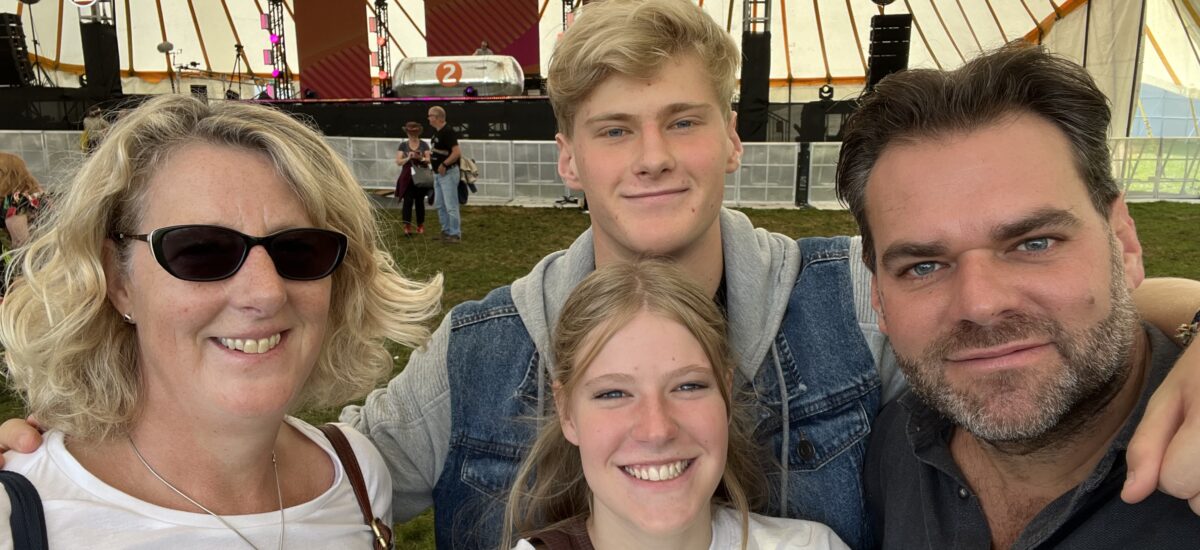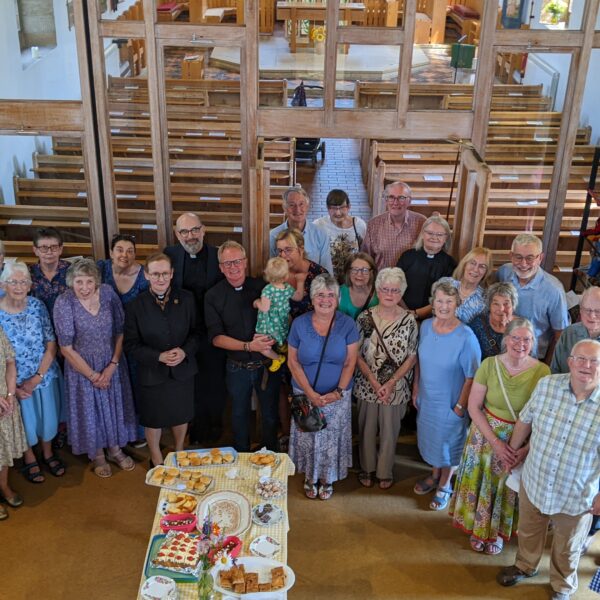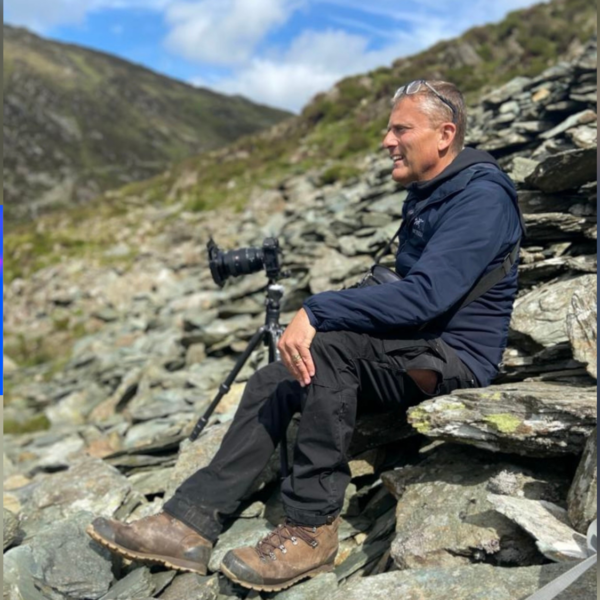The Revd Barry Hill will be consecrated as the Bishop of Whitby on 10th October.
1. What attracted you to your new role?
The opportunity to support the churches, schools, clergy and congregations of Cleveland and the 1.5m people across the wider diocese in inviting those God has called us to serve to live Christ’s story, that we all may know more of the hope, life and joy of Jesus Christ.
2. If you could invite one person from the Bible or Christian history to dinner, who would it be?
I’ve started writing this sentence a dozen times as there are so many but if only one then Mary, the mother of Jesus. To experience the faith that, for someone so overlooked for so many reasons, says ‘yes’ to God and then goes toe to toe with the Roman Empire, praising God for ‘casting down the mighty from their thrones, and lifting up the lowly’. Fabulous.
3. Who has been influential to you in your faith journey?
As a newish, frankly rather annoying, Christian in my late teens trying to discern how God was calling, I remain grateful to God for a faithful, caring youth group leader and a local bishop who made space and gave opportunities for me and others to lead and grow. My hope, as Bishop of Whitby, is to do the same for others.
4. What are you most looking forward to?
Getting to better know the people and places of the Archdeaconry of Cleveland and the wider diocese, hearing younger and more diverse voices and stories lead us, and working with colleagues to see more of God’s Kingdom here. God works and I hope we can encourage one another in the difference faith practically makes in our lives and communities.
5. We know you’re a big Brighton and Hove Albion fan – is there a crossover between faith and football?
Absolutely – what matters to us matters to God, which is why both the Riverside Stadium and Brighton’s crest are on my bishop’s robes. Prayer is a conversation in which we listen, speak and learn more of God’s will, that includes being able to share all that is important to us (including Brighton getting back into Europe next season), trusting that God knows best.
6. What brings you joy?
Blasting music whilst dancing round the kitchen cooking is right up there. For a more theological answer, I find joy is often the product of habits of gratitude rather than the other way round. Unsurprisingly the more I live a life marinated in thanksgiving the more joyful I am. That can be hard and at times tiring, not least because (as for most clergy and lay leaders) each day brings wonderful blessings mixed with being face to face with sometimes brutal pain and suffering. Each evening presents a choice as to which we focus on. It also helps when Brighton win!
7. What is your favourite liturgical season?
I love ordinary time (the one we wear green in). So often the disciples craved the mountain top moments of faith and yet forgot them quickly. For me, faith is realest in the day to day – making a difference to how we wash up, shop, care for a loved one, treat the driver when the bus is late, rest or play. A big part of the draw for me is that Living Christ’s Story is about 10am Monday and 10pm Thursday just as much as 10am Sunday. That’s good news as most people I know who aren’t yet Christians want to know faith isn’t trivial. Being a follower of Jesus might be many things, but it always makes a difference everywhere at all times.
8. How do you pray?
My head is often a tree of monkeys so I’ve found the regular rhythm of daily prayer important, transcending how energised or coherent I am on any given day. I try to ask people after each encounter how I can pray for them, both praying in the moment and holding a weekly rhythm of people and places before God. Worshipping musically is important as is reading the Bible in company with the saints around the world and through the ages, so I try to read a brief commentary which is further from my personal lived experience to accompany one of the morning prayer readings (currently a commentary written by South East Asian theologians).
9. How do you rest?
An ideal night off would involve a good meal, musical theatre, a good film or play, or if I’m home alone blasting music like P!nk through the house. Like most church leaders I can have a complex relationship with rest, and busyness can be a dangerously tempting currency of exchange and affirmation – albeit we don’t tend to boast so much about breaking God’s other commands! I long for a day as a Church we can live sabbath rest in a way which draws people to Christ.
10. What new skill, hobby, or language, do you think might help you in your new role?
I find learning a new skill each year (currently rollerskating) is a good reminder that I don’t know it all, but I suspect this reminder won’t be needed in my new calling (nor was it much in my last)! More profoundly in a society where, at times, there are deficits of grace and generosity, to cultivate these more in me and encourage them more in others is always important.
11. Which saint’s life inspires you?
It’s been a great blessing already to have met many saints across the diocese who shine bright with the light of Christ but from those in our history, I have chosen Hilda and Caedmon to feature on my robes. Hilda’s mother had a vision of her as a jewel emitting “such a brilliant light that all Britain was lit by its splendour,” so Whitby Abbey is depicted with light shining forth. On my robes, in the Abbey’s grounds I asked for a cow to represent Caedmon, the cowherdsman who, after lacking in confidence, was given a vision by God which, with Hilda’s encouragement, led to him writing the first hymn we are aware of in the English language. Both stories tell us a lot about the nature of God, who and how God calls.
12. What lesson have you learned by listening?
That Church and its leadership are always in the plural, and together we can be and do far more than we can apart.
13. What’s the most urgent or important message you bring to the communities and people of the Diocese of York?
Jesus’ mission was urgent but he was rarely in a hurry. In the Kingdom of God, each of us is called to make a bigger difference than often we think or imagine, and whilst mission and ministry is sacrificial, fruitfulness rarely comes through working harder, bigger or faster but in trusting ourselves afresh to the beautiful faithfulness of God. To reach those we are called to serve, we need to rest deeply on that life-giving love whilst reminding each other that as we are led by the Spirit, we can expect more from God and from ourselves


